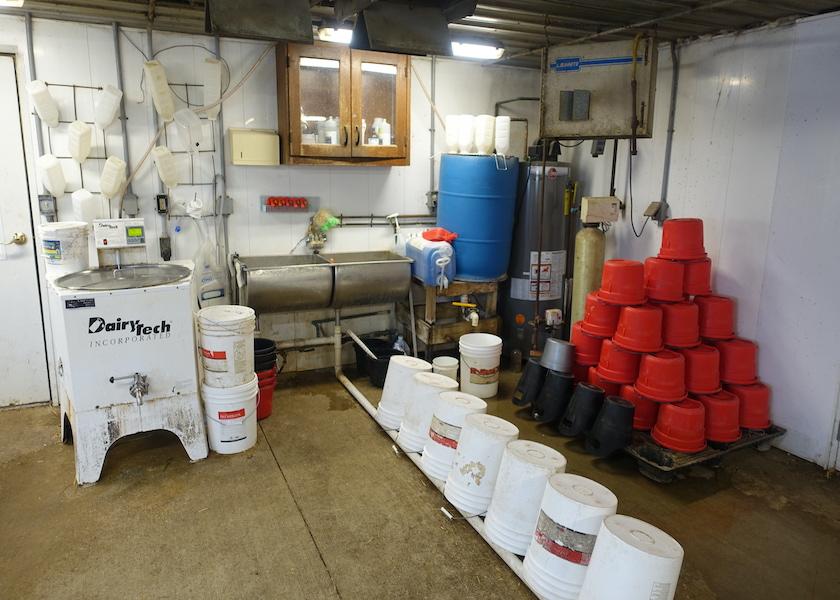Try to Keep Dry to Prevent Crypto

You’ll never completely eliminate Cryptosporidium parasites from your farm. But you can play a mean game of offense with a singular strategy in the calf department: keep everything dry.
According to University of Pennsylvania dairy Extension educators and researchers Melissa Cantor and Hayley Springer, the tiny oocysts that calves infected with Cryptosporidium parvum shed in their feces have a hard outer shell that encloses and protects the parasite.
The Pennsylvania researchers shared in a recent bulletin on Cryptosporidium parvum that just one tablespoon of feces from a Crypto-infected calf contains enough oocysts to infect dozens of other calves if they consume it orally. The oocysts are highly protective of the parasites they carry, making them difficult to kill.
But one major factor in their survival is that they need moisture for sustenance.
That’s why Cantor and Springer said the most effective way to keep Crypto at bay is to remove moisture from calf environments and feeding utensils by:
- Frequently removing soiled bedding from calf pens.
- Minimizing humidity in calf housing environments.
- Cleaning bottles, pails, nipples, and other feeding equipment with very hot (160°F) water and then letting them dry completely after every use.
They said pens also can be sanitized after cleaning by spraying them down with a 3% hydrogen peroxide solution and allowing them to dry before returning calves to the pens. Metal surfaces should be rinsed after 10 minutes because hydrogen peroxide is an oxidizer and can cause rust.
Once calves are infected with Crypto, they can become weak and lethargic, also often suffering from scours (especially around 7-21 days of age), poor nutrient absorption, sub-par growth, and reduced feed efficiency.
Drinking water can carry and spread Crypto among calves, so it should be tested if a large number of calves are struggling with the disease. If Crypto is discovered in the water, a filtration system can help mitigate the pathogen load.
There is no effective treatment against Crypto infections, and Cantor and Springer advised the only reactive measures for infected calves come in the form of supportive care like rehydration therapy.
Finally, “it is critical to remember that Crypto can cause disease in humans,” they advised. “So appropriate strategies, such as wearing gloves, should be used every time a sick calf is handled.”







